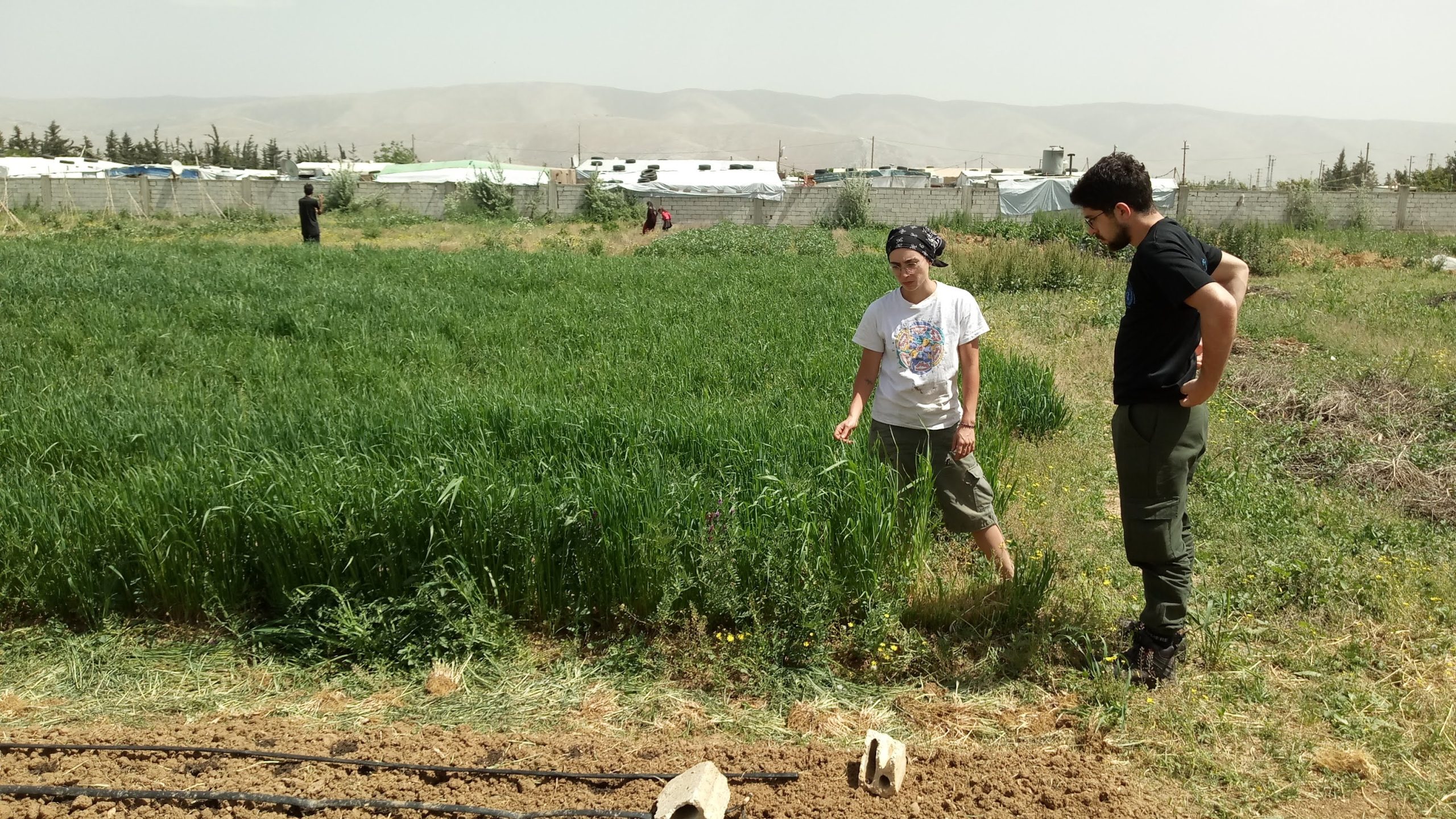Tarik Akhdar (Green Road) – Fair trade and Agroecology
A strong alliance for economic diversification and increased resilience of small producers
Lebanon
Lead organization
Fair Trade Lebanon is a local NGO created in 2006. The NGO started with cooperatives of women in charge of food processing scattered all over Lebanon, based on the observation that Lebanese women in rural communities have strong but underemployed skills and potential.

Partner Organizations:
- Association pour le Droit à l’Initiative Economique (ADIE) is a French micro-credit agency created 30 years ago.
- Solidarité Internationale pour le Développement et l’Investissement (SIDI) is a French micro-credit agency created in 1983. As rural development and family farming is one of their priorities, the organisation also supports farmers’ organisations (such as cooperatives) and agri-SMEs.
- Al Majmoua is a Lebanese micro-credit agency with a mission to promote sustainable development by improving the economic and social conditions of low-income individuals, especially micro-entrepreneurs and women, through the provision of financial and non-financial services, all over Lebanon.
- Fair Trade and Tourism Lebanon also known as Terroirs du Liban, is a socially engaged gourmet food brand offering authentic Lebanese specialties, developed by Fair Trade Lebanon. They belong to the global community of Fair Trade Enterprises (WFTO) that fully practise Fair Trade principles.
Country
Lebanon
Timeline
From September 2022 to August 2025
Funding
USD 1,093,153 (equivalent to EUR 1 million), funded by Agence Française pour le Développement (AFD), Foundation ACTES, Région Île-de-France, and Drosos Foundation.
Mission
Supporting the agricultural sector towards an ecological and social transition.
Context
- Agricultural Context: Lebanon is a Mediterranean country with high mountains (up to 3,000 metres). The country does not have a high production of raw materials, but produces rather high-quality products that can be found in delicatessen shops in Lebanon and abroad. One of their key assets is that they produce a great diversity of products: Citrus fruits, tomatoes, cucumbers, olives and olive oil, almonds, grapes and wine, prunes, apricots, peaches, cherries, and apples. They also engage in small-scale breeding and fisheries. Most of the farms and processing units are artisanal, family-based and small-scale. Agriculture is not supported by policymakers, so there is an increasing quantity of abandoned agricultural land. The agricultural market is dominated by synthetic agrochemical importers who offer their products at the beginning of the season and are paid at the end of the season, creating a dependency. Awareness is increasing around organic and fairtrade products, thanks to the certification process and visibility at farmers markets.
- Economic and Political Context: Lebanon is faced with multiple crises. Inflation rates have been high since 2019, which encourages some people to come back to rural areas and cultivate the land. There is a lack of government stability (e.g. the country has had no President, elections, or government for 14 months). The banking system is weak, there is a lack of access to lines of credit, and the purchasing power of the Lebanese people is in decline. The current conflict in Gaza also has direct repercussions in the southern part of the country; the use of phosphorus bombs has destructive effects on the environment, plants and soil, thereby affecting local agriculture.
Main beneficiaries
People far from urban areas, vulnerable communities (suffering from the socio-economic crisis):
- 1,200 people (including 50% women, and youth at the beginning of their business activities)
- 600 members of production units trained
- 110 production units access innovative funding (80 micro-enterprises, and 30 informal groups and cooperatives)
- 5,000 people sensitized on fair trade and agroecology issues (via universities and the organization of two forums)
Strategy
Objectives
Overall objective: Contribute to the revival of the Lebanese rural and agricultural economy by promoting ecological and social transition and providing financial support to fair trade actors and micro-enterprises.
Specific Objective: Supporting and financing of cooperatives and micro-enterprises that adopt socially and ecologically sustainable operating methods.
Activities
Featured principles and elements: fairness, economic diversification, connectivity, and participation
- Organise agroecological trainings for informal groups wishing to create a cooperative (e.g. olives, legumes, vegetables, fruits, aromatic herbs, honey, preserves, as well as climate adaptation and mitigation practices), for future micro-entrepreneurs, and for groups of cooperatives and micro-entrepreneurs already established
- Set up pilot local markets, in partnership with small producers and local authorities and support the participation of producers themselves (without intermediary) at local events and farmers markets (which are new and still uncommon) by paying for transport costs
- Set up a partnership between Fair Trade Lebanon and Al Majmoua to offer innovative financing solutions such as micro-credits to increase beneficiaries’ activities or launch new ones
- Develop support modules such as financial projections, creation of a cooperative, and business development
- Raise awareness and create an advocacy campaign targeting political decision makers
- Organise two forums on “fair trade as a lever towards ecological and social transition”: one at the national level in 2024, and one at the regional level in 2025
- Ensure traceability of food products
-
- Farmers participate in farmers markets themselves, ensuring direct links between consumers and producers.
-
- Getting the WFTO label ensures the traceability of food products.
-
- A QR code was developed to indicate the geographic origin of products.
-
- A local label specific to Lebanon (i.e. Transparency, Ethics, and Quality TEQ) was developed as well.
Monitoring and Evaluation Methods
In addition to activities carried out directly with farmers and producers, the project includes several studies designed to strengthen the advocacy capacity of the various project stakeholders:
- A mapping of pioneering agro-ecology initiatives in Lebanon
- A study of the obstacles to accessing credit for farmers and agri-food producers
- A study of the resistance to adoption of the cooperative management model by Lebanese entrepreneurs and the alternatives that could lead to the creation of a legal framework for social enterprises
Moreover, an adaptation of the FAO’s Tool for Agroecology Performance Evaluation (TAPE) and of the Biovision’s Business Agroecology Criteria Tool (B-ACT) to the Lebanese context and processing units is currently being studied to monitor the agroecological performance of the project.
Finally, the project is planning two workshops in 2025, bringing together a wide audience: the first workshop will be an opportunity to announce the establishment of the Agroecology Coalition in Lebanon (ACL) and will have a national impact, while the second aims to bring together the main agroecology players from around the Mediterranean to strengthen mobilisation in favour of ecological transition on a regional scale.
Outcomes and Lessons Learned
Outcomes
- The project was able to reach people far from urban areas, vulnerable communities (suffering from the socio-economic crisis), specifically:
- 1,200 people (including 50% women and youth at the beginning of their business activities)
- Training for 600 members of production units
- access to innovative funding for 110 production units (80 micro-enterprises and 30 informal groups and cooperatives)
- 5,000 people with a new awareness of fair trade and agroecology issues (via universities and the organisation of two forums)
Lessons Learned
- Having qualified people graduating universities with high degrees in agronomy creates potential to develop small-scale enterprises and innovative projects (e.g. mushrooms, red fruits) as well as entrepreneurship.
- Creating a collective dynamic (e.g. AOP) and agreeing on common norms and standards can be difficult.
- The absence of strong national agriculture policies does not incentivise the development of sustainable agriculture, fair trade or agroecology. Large companies are also unable to buy land. Lebanese agriculture is largely based on family farming and the smallholder model, with most of the land owned by smallholders (except in the region of Bekaa).
- Both the increase of price of imported synthetic inputs and a higher demand for organic products triggered the creation of small start-ups to produce local and organic inputs in response to farmers’ demand, paving the way to enhance the circular economy and prompting better waste management.
Hyperlinks
Fair Trade Lebanon: https://fairtradelebanon.org
Report, 2021, Increased food security for vulnerable communities through sustainable smallholders farming.
Contact
Benoit Berger, Fair Trade Lebanon, b.berger@fairtradelebanon.org
Picture credits: Fair Trade Lebanon








